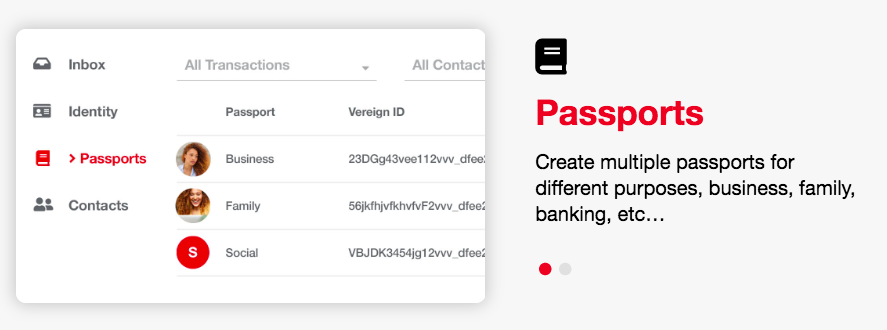Vereign lays the groundwork for a more secure email experience
As any dedicated email user knows, there is nothing more frightening than receiving an email from your colleague, asking if the link sent in your name requesting a money transfer is actually from you. Of course, it’s not the fear of who else received that link that actually shakes you. Rather, it’s the realization that your email, a platform that holds some of your most confidential transactions and personal information, has been hacked. This recurring nightmare has left many wondering if email can still be relied upon as their primary platform for day-to-day communication.
There are many companies trying to tackle this problem from a cybersecurity angle, either through encryption or anti-spam mechanisms. Georg Greve, Co-Founder and President of Vereign, understands the vital importance of email, and has found a unique way to give people the reassurance they need to remain loyal users of the not-always-so-loyal platform.
Vereign is an intuitive software platform meant to enhance security measures in day-to-day communication by merging into existing digital platforms, such as email, chats and browsers. Vereign’s seamless browser plugin performs verification processes that add a level of authenticity to a user’s personal data on their most frequented online applications. The ultimate goal here is to create greater credibility and trust in the interactions taking place online, and eliminate phishing, fraud, and spam from the email experience entirely.
In a booming, tech-centric, global world, email is undoubtedly the most effective and widely used means for communication; at 3.8 billion users, our global marketplace would not be as prosperous as it is today without this reliable platform. That’s not to say it hasn’t come with complications. Indeed, authenticity problems and cyber attacks by way of infected emails were not considered a threat by developers when email was first established, and they are now tasked with combating these privacy pitfalls. The financial strain that accompanies malware and scam attempts has reached the billions, with over 90% of these bugs travelling through email. As a result, Vereign strives to decentralize privacy clouds and use innovative key management as a means of strengthening the way in which user information is stored and shared.
Vereign operates by way of a personalized dashboard, where users can develop and control what Vereign calls, “Digital Passports.” These passports allow users to securely store personal information and data. With the ability to create multiple passports, each with a different verification layer, users can disperse their data amongst their folders, enhancing the level of security around the information that is stored.

The passport method uses cryptographic signatures, which guarantees that the information being recorded is only what the user confirmed. Additionally, by using cryptography, the software builds a social roster of the user’s frequent interactions. This means that any adjustments, changes or inconsistencies will be made visible to the user. Vereign has added another secure technological development to the mix, blockchain. The distributed ledger technology maintains an ongoing log of past messages and the recipient’s identities, with the exact times in which a message is delivered, risk free from being tampered with. If these features weren’t already enough to illustrate the extent to which Vereign is taking digital security seriously, they also document a social interaction trail, which will verify the content and the delivery time of the message. Indeed, it appears as though Vereign has looked at every major crack in email’s technology, and has taken the necessary steps to ensure that the popular platform can still thrive for years to come.
While giving us control over our data is definitely the right step forward, in a world where more and more applications come to play, keeping track of where and how we’ve stored our information can get overwhelming. Certainly, when email emerged as a new and exciting invention, developers didn’t know what kinds of bugs and infections they would face. With this in mind, it’s hard to say whether Vereign will face a similar fate a few years down the road. It isn’t the first time a company has tried to secure email, messaging and online application platforms. Still, hackers seem to always find a new way through. And if we’ve learned anything from the countless cyber attacks from 2018, it’s that nothing online is ever truly safe.
Nonetheless, it’s hard to deny that there are several flaws facing current email technology, and as the most widely used, digital platform for online interaction, we should take any precaution we can to ensure the information we’re storing, sharing and documenting is kept safe and secure.
